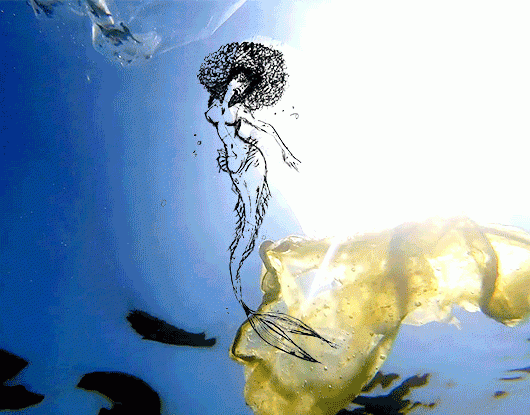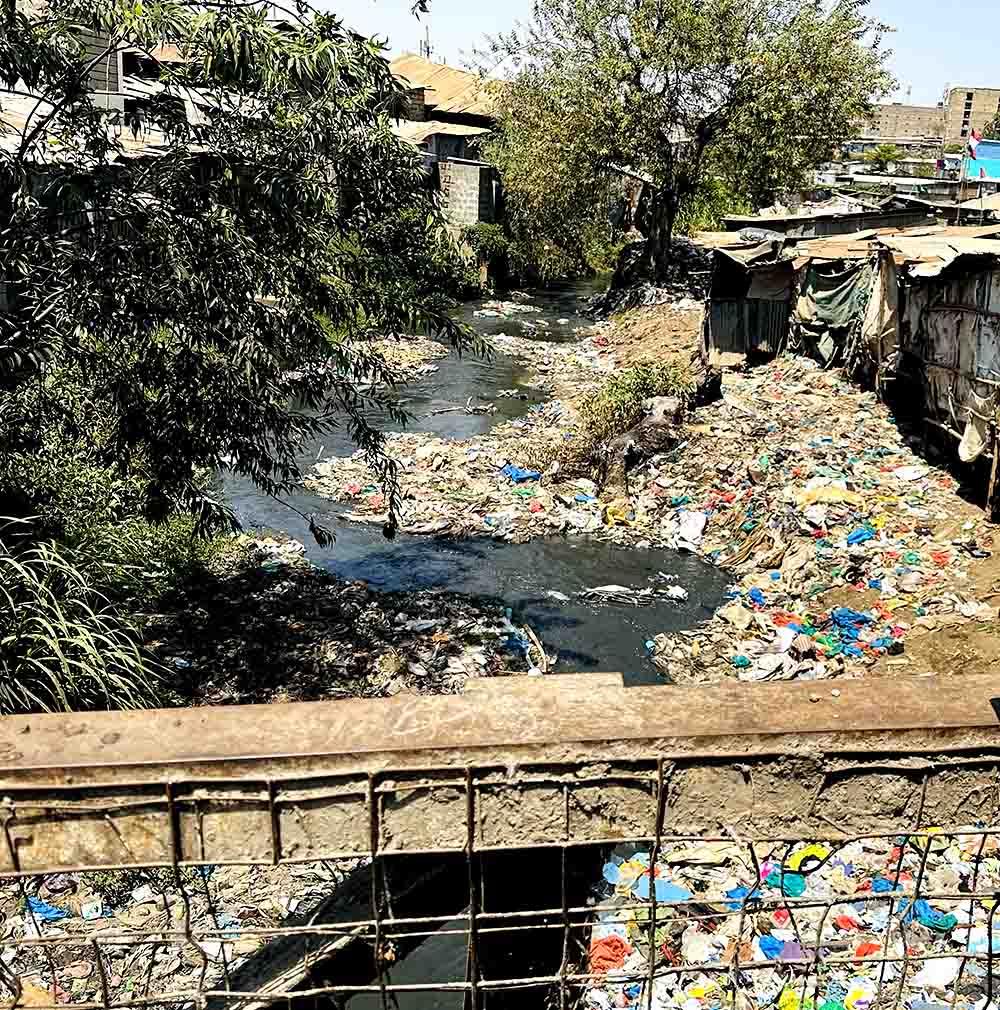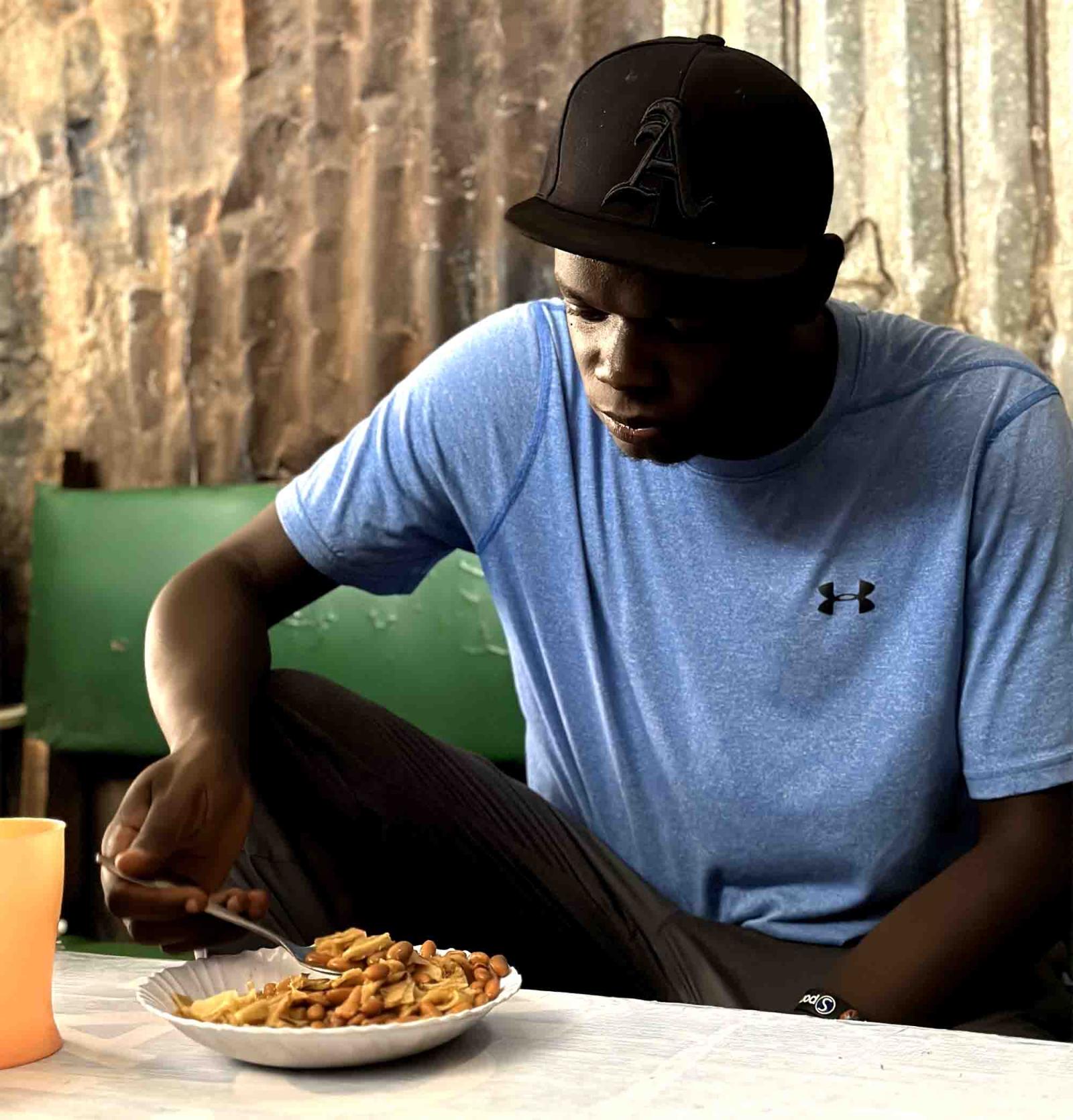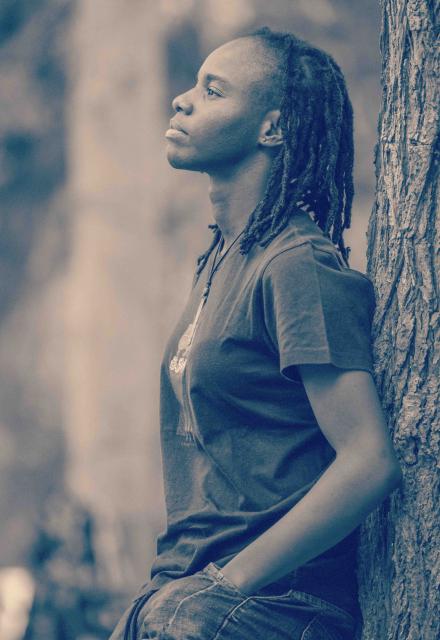
When Martin Odour was a boy, he would go down to the river which flows through Mathare, together with his friends, and they would swim in the water, even though it was a muddy brown. Martin, born and raised in the so-called Mathare slums, the second largest slum area in Kenya, was an activist from a very young age. Growing up, Martin joined hands with friends from his community who felt the same strong need to transform the landscapes they lived in and change the negative narratives that existed about them. They wanted to highlight the root problems in Mathare's social environment and its residents, by making explicit links between the rampant police violence and the state of the neglected environment in which they lived.

But when Martin and his friends were not developing tools for change, they would go to the river and playfully swim together, in the company of women washing their clothes by the banks of the water. This river, River Mathare, was a powerful mythological centre for the community and a body of water, which would become a central focus for Martin’s later work.
- “Years back, when we were kids, apart from swimming in this river, we would also do some fishing. Our main catch was mudfish, tilapia, and scorpions. Our parents, especially mothers, would also collect the water from the river for domestic purposes. We used to call our swimming dufo mpararo, which means dirty swimming.”
While splashing around, one of Martin’s friends would start telling stories about ‘the woman in the deepest parts of the river’. They called her Wambui (pronounced Waboi) - a beautiful lady of the river. She could shift shapes and turn into a complete human being with legs that took her out of the water and into the village. At night she would walk onto land and interact with all the locals. No one really knew that they were chatting with a mythological creature. She used her beauty to lure men into the river. They would become like zombies walking into the water, never to be seen by anyone again.
Then one night, she walked onto land and got married to a local man. This put an end to all the disappearances of men, Martin’s friend said with playful eyes. She was never seen again.
- “It could be your mother!” Martin's friend would suddenly shout, and Martin would get a fright but pretend not to and chase his friend playfully on to the shore.

In the Mathare community this is a story about a time when the river was still clean. Clean enough to give shelter to Wambui. As the river became polluted through the years, Martin grew up and became a young man, and the river started to change its colour from a light brown to a filthy sticky dark brown. Plastic, trash, and bottles flowing on its surface. Wambui chose a man to marry, migrated into the human world, and no one has seen her since then.
- “The river no longer has fish nor scorpions. Our parents can no longer use the water for the households. The depth and the width have decreased, which I believe is a result of climate change. Humans have polluted it through improper disposal of plastic waste, sewage leaks and waste from local industries”. Martin describes and continues:
"So far, since we started, we've managed to reclaim several neglected trash sites and transformed them into beautiful green public spaces and gardens for the Mathare residents".
- “In my work as an environment conservationist and activist, I do envision a neighbourhood where we the youth from the marginalised communities, aren't judged based on where we come from, but where we will be judged by what we've done for our community. And this serves as an inspiration to imagine a new dignified future for the next generations. A river is more than an amenity, it is a treasure which offers the necessities of life and has been provided to us by nature for free. And that's why we are in the forefront advocating for its restoration and conservation”, Martin explains.
Today the childish swimming days are long behind Martin, and he is active in the grassroots organisations Mathare Green Movement and Ecovista. Sensing a burden from many years of work, Martin is in a period of his life where he is experiencing confusion. Not just confused because Nairobi is constantly in an energy shortage, experiencing repeated electrical blackouts, making it harder to manoeuvre in his everyday life and work, but confused because his local political leaders are not supporting his work for change.
- “We are trying to put an end to the river pollution. You will find out that our grassroot community is speaking out about the challenges to our political leaders. Yet we are on our own. When we try to get support from our leaders, they don’t recognise us. When we write a letter to the relevant authorities, the letter will just be placed in a drawer - there to be forgotten. This is demoralising. Our efforts are not being recognised by people who are supposed to support us. And when it comes to prestigious events such as the UN Climate Change Conferences (COP), we will see our leaders on those big televisions, speaking about how they are working with us, the grassroot communities. But it’s not the truth.”
One of the repeated actions organised by Mathare Green Movement, is a community cleaning of the river. The whole community puts on their boots and gloves and starts walking through the water, picking up trash one piece at a time.
- “So far, since we started, we've managed to reclaim several neglected trash sites and transformed them into beautiful green public spaces and gardens for the Mathare residents. Our work also involves preparing the land to plant trees, shrubs and flowers that are often accompanied by colourful murals on adjacent walls. Drawing from this passion for environment conservation and advocacy, I together with youth from different parts of the country joined hands to form the Ecovista Movement. This came from the training that we had at Global Platforms Nanyuki on climate justice advocacy and movement building. Our work as Ecovista is to create a platform where we meet and unite with like-minded youth at the grassroots level, who are at the forefront amplifying climate justice talks, sharing ideas on how to reduce the gap between climate illiteracy in the community and the use of social media as a tool to advocate for climate justice”, Martin explains.
In 30 years to come, I yearn to see a river which is free from sewage leaks, plastic waste floating on it and industrial waste. I want to see kids swimming again in this river. And I won't hesitate to go fishing again.

When Martin is asked what his community means to him, he talks of it as the place he was born; that it is family. A family that actively cherishes the spirit of ubuntu. To understand the spirit of ubuntu Martin uses an example he heard told by one of his elders once – if you want to go fast, go alone, but if you want to go further, you need to go together.
- “And the key lessons that I've learnt from working with the youth is, that the lasting way to bring change in the lives of residents of Mathare, is to change the physical environment using the transformative powers of nature. Inspired by the words of Nobel Prize Laureate Wangari Maathai, I believe that when we plant trees, we plant seeds of peace and seeds of hope.”
And who knows – maybe one day the beautiful river lady Wambui, will once again leave her legs behind by the shore and crawl into the depths of the River Mathare, to go looking for men who are willing to follow her there.
- ”In 30 years to come, I yearn to see a river which is free from sewage leaks, plastic waste floating on it and industrial waste. I want to see kids swimming again in this river. And I won't hesitate to go fishing again. I believe that the call to conserve the environment should also receive the same attention as does the call for climate change.“


